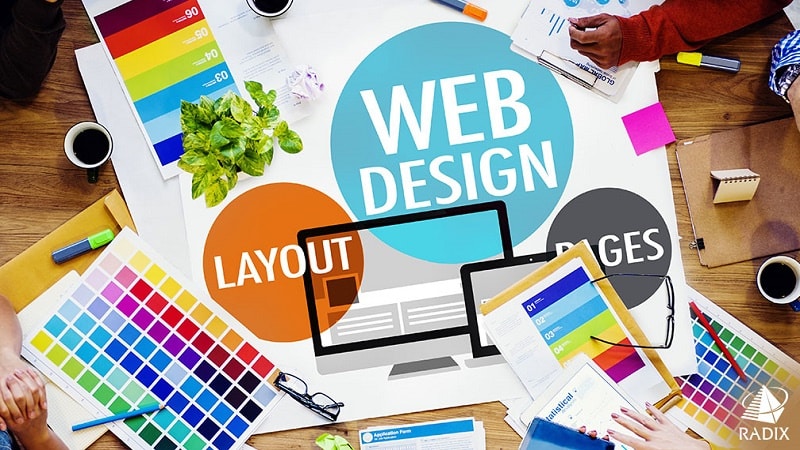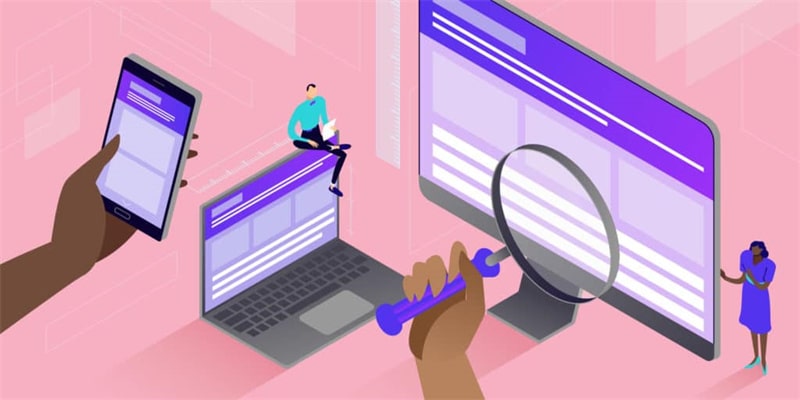
In modern business, your company's website is a critical part of your success.
Your company's website is a central hub for useful information, communication, sales, and marketing. In this respect one of the most vital aspects of a good website is usability. A website can be visually stunning and technically proficient but if it's hard or annoying to use then your visitors will close the window.
There are many rules for effective web design Phoenix and these common design concepts are based on core principles of what makes a website easy to use and effective at communicating with any visitors. Web design companies such as Avenue 25 are committed to making websites that help you stand out from your competition and increase customer engagement.
Part of achieving these goals is understanding the ideas that go into effective web design. Here is more information about these concepts.
Seven Concepts of Effective Web Design
1. The Importance of Being Obvious

One of the most important ideas of an effective website is that it should be obvious. Your visitors shouldn't come to your site and be confused about what they are looking at. Your site should be structured, have links that are easy to find, and use visual clues as a form of subtle guidance. Also, your text content should be clear. If a potential customer is reading your homepage and has broad questions about what your company even does or the services you offer further clarity is needed. Your website needs to effectively communicate what you do and how you can help customers solve their problems.
2. Give Visitor's a Point of Focus
Attracting attention is an important web design concept and depending on how you do it you can easily draw a visitor's eyes to something important that you want them to read first on a page. The use of different text, bold text, and images are some ways to draw the reader's attention.
Also, the use of motion, patterns, and the color of edges can draw the reader's attention. This type of focus can tell visitors what to focus on, what to read, and the order to read it. This makes overall website navigation easier by providing a guide.
3. Remove Barriers
Time is a valuable resource, and you don't want to waste the time of your visitors. When designing a website you should try to limit the need to register with a log-in or sign up for a subscription before gaining access to the site's information. Give users time to navigate the site and gather information. If a sign-up is needed it should be simple to do and come near the end of the visitor's time on the site.
4. Strike The Proper Tone In Your Writing
Writing for the front page of a website is different from writing articles or promotional material. While your website should certainly have longer and more complex articles as part of your material these items should be provided for further information and informing visitors who are interested in more complex information.
Your website and main navigation pages should make use of shorter word blocks and formatting such as italics and bold to call attention to specific sentences. Keep jargon to a minimum, be direct about your business, use concise phrases, and avoid being overly promotional when it is unneeded.
5. Economize Your Use Of Space
Because you have to keep your writing concise on a website you have to make use of the amount of space you have. The best way to make the most out of brief pieces of writing is to keep your writing clear, simple, and distinct. Your content should also place proper emphasis when needed.
Content should only include important points with no filler, and no ambiguousness in your word choices. The key parts of your writing need to be distinctive and stand out. Proper emphasis causes readers to focus on the most important points in your content and easily understand it.
6. Sell Solutions and Keep It Simple
When visitors come to your company's website they have some problems they need to be solved. They need a good or service you provide and want this issue addressed simply and often as quickly as possible.
Keeping your website simple and focused on what a future customer needs to know can improve engagement rates. From the users' viewpoint, the information is what they are on your website for clever designs and creative use of layouts is not what their goal is and can even serve as a distraction.
7. Conventional Design Is OK

When designing a website the conventional and commonplace should be used effectively in your website's layout. Websites have been around for decades and users have certain expectations on what a website is and how it should work. These conventions are useful because they reduce the learning curve. Users already have an idea of what to expect when they visit a website, and you should take advantage of these expectations as it speeds things up.
Innovation is certainly a valuable thing but if misapplied it can lead to confusion and wasted time as a visitor has to relearn how to navigate an unconventional website. Any non-conventional design concepts should improve upon whatever idea they are being applied to.
Final Thoughts
Your company's website is a very important part of your business and should be given careful consideration. Often hiring outside experts is one of the best choices you can make. By hiring a professional you gain access to the experience and specific skills needed to design a website that provides you with the ROI you're looking for.










